Death comes in many forms. It's usually sudden and random, and we are doing our best to make sense of the senseless. David Cronenberg's The Shrouds is an incredibly intimate look at the physical nature of grief that I've never seen portrayed on screen. A deeply personal and haunting look at the absurd attachment we have to the human body once it is gone had me moved to tears at times. The film's choice of title and off-putting delivery of dialogue will put many people off, but this deliberate stylistic choice worked for me. It worked perfectly for the dark and twisted humor the film feasts on. The Shrouds is shocking not because of its body horror or wild conspiracies or its fascinating look at the way we would use technology in the future to commodify and abuse the dead, but because we are left with no real answers. The dead live on with us, and the way we handle that or choose to cope, we will never know what is truly right.
The Shrouds follows Karsh (Vincent Cassel), who has developed a new technology that allows people to see a 3D image of their deceased loved ones underground by having the dead wear these high-tech shrouds around them. He developed these after his wife passed away from cancer and wanted to stay close to her and be buried beside her one day. Karsh's cemetery is attacked, and several of the gravestones topple over. Karsh calls upon his friend Maury (Guy Pearce), who helped create the software and technology revolving around GraveTech, including Karsh's AI assistant, to see who the attackers could be. Karsh also tries to continue seeking companionship, which includes a wealthy CEO, Soo-Min Szabo (Sandrine Holt), and the twin sister of his dearly beloved deceased wife, Terry (Diane Kruger). The film falls into madness, including wild conspiracies of environmentalists, foreign intervention, and ex-lovers wanting to take down Karsh. All the while, Karsh relives intimate flashbacks of his wife as she has cancer.
Cronenberg is the master of body horror, but seeing him continue to push the genre forward and innovate as a director is stunning. The Shrouds is a perfect follow-up to his masterpiece The Fly (1986), a film that uses the gross and disgusting transformation of Jeff Goldblum as a metaphor for the horror of cancer and being with someone as they go through something like that. The Shrouds is what happens after. The PTSD of going through something like that with the person you love most in the world, your person is now gone, but still a physical body that you touched and felt so intimately, how can you possibly let that go? Several scenes in The Shrouds involve Karsh having these intimate flashback dream sequences where he sees his naked wife slowly break down and have limbs and parts taken away from her, and they've also been taken away from him. These were some of the film's most effective and heartbreaking scenes that shocked me with some of the horrors, and how intimately devastating that could be for anyone.
I loved Cronenberg's take on future technology as well. Of course, if this technology existed, people would try to harness it for their gains and wouldn't care about the gravitas or sacredness of the dead. The film delves into a future where the dead can be commodified and abused through technology, a concept that is already being explored in our current society. I thought Karsh's AI companion Hunny was off-putting and cringed for sure, but unfortunately, as I see it online, it's way closer to the truth about AI than I could imagine. The commodification of the dead is already going on now, and seeing how this would be the logical follow-up and fallout from environmental groups and world powers trying to abuse or facilitate their control over this new technology is so interesting. The rabbit hole of conspiracies that the film takes you down is so convoluted and insane that I think Cronenberg may be showing the spiral people go through during grief and how everything makes sense and doesn't. The nitpickers of this film will have a field day, and I don't blame them. Still, Cronenberg is trying to say that the confusion and overwhelmingness of losing your person can come in ways that won't be satisfying and very confounding.
I've usually spoken about performances by this point, but The Shrouds is challenging to articulate what Cronenberg wants out of them. The stilted and off-putting delivery of dialogue here is a choice, and I believe Cassel is experiencing a bizarre world in which his wife is no longer here outside of her physical body. This is how the world feels to him now, just surrounded by unsettling people as someone who has no peace. I think this deliberate choice worked for me, especially in a scene where two characters are having passionate sex and are having a great, detailed conversation about what they both want and excite them while coping with the grief of someone they love. It's utterly fantastic, to be honest. Seeing an exciting new way to put sex on the screen, only my man Cronenberg. The film has a very sick sense of humor that worked for me, especially Guy Pearce as a paranoid, loser divorced guy who spirals out of control, but mileage will vary for those who struggle to know when they should be laughing or cringing. Why can't both be true?
David Cronenberg continues to be Canada's greatest export. The Shrouds is a profoundly personal and loving look at grief and how we can try to make sense of a world where we can still find love for those who are gone. Cronenberg's infusion of technology meeting sorrow is incredible. The film's pacing, which may frustrate some viewers, is a deliberate choice to mirror the protagonist's emotional journey. The ending, which leaves many questions unanswered, reflects the film's exploration of the ambiguity of grief. If you allow this shroud to fall over your shoulders, you'll find something truly special with this one.
Final Score: 8.5/10
Written by Kevin J. Pettit

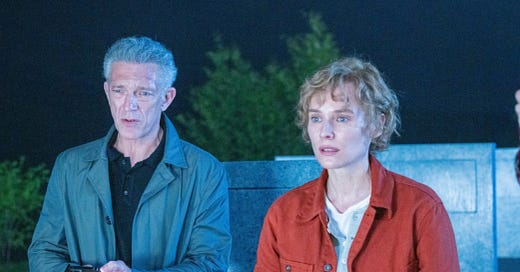



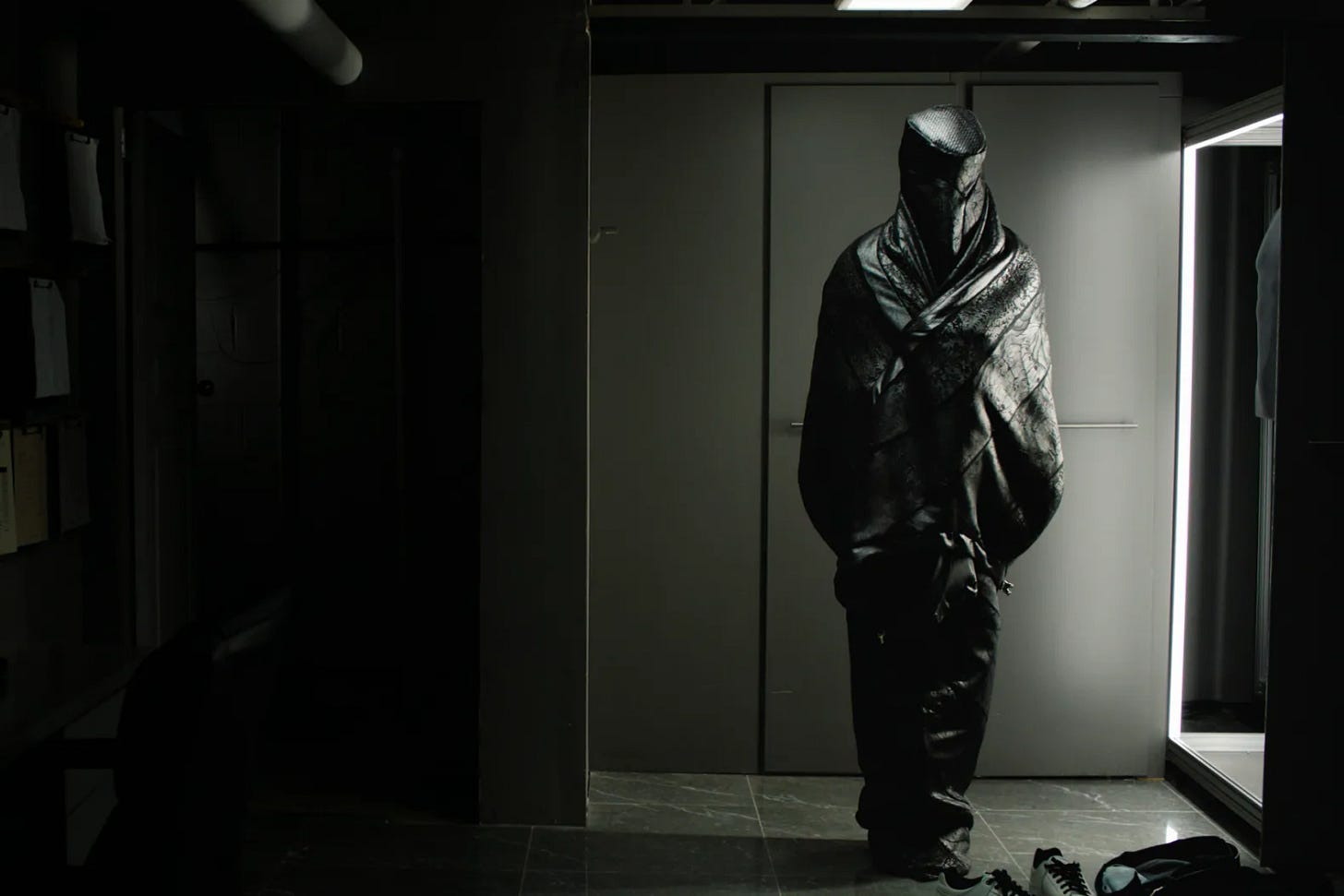
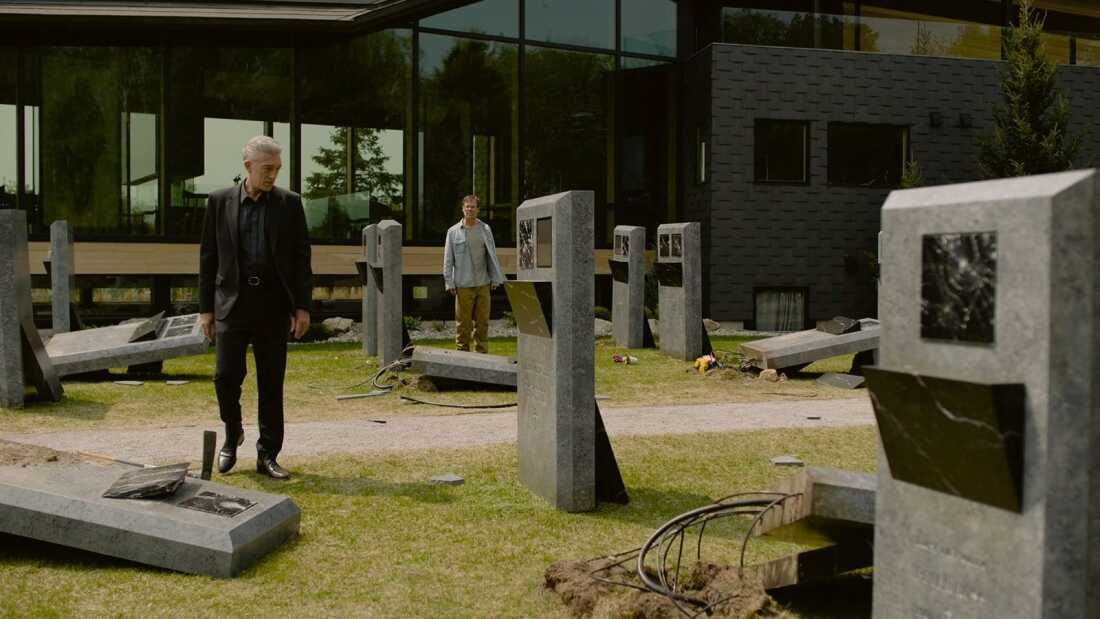
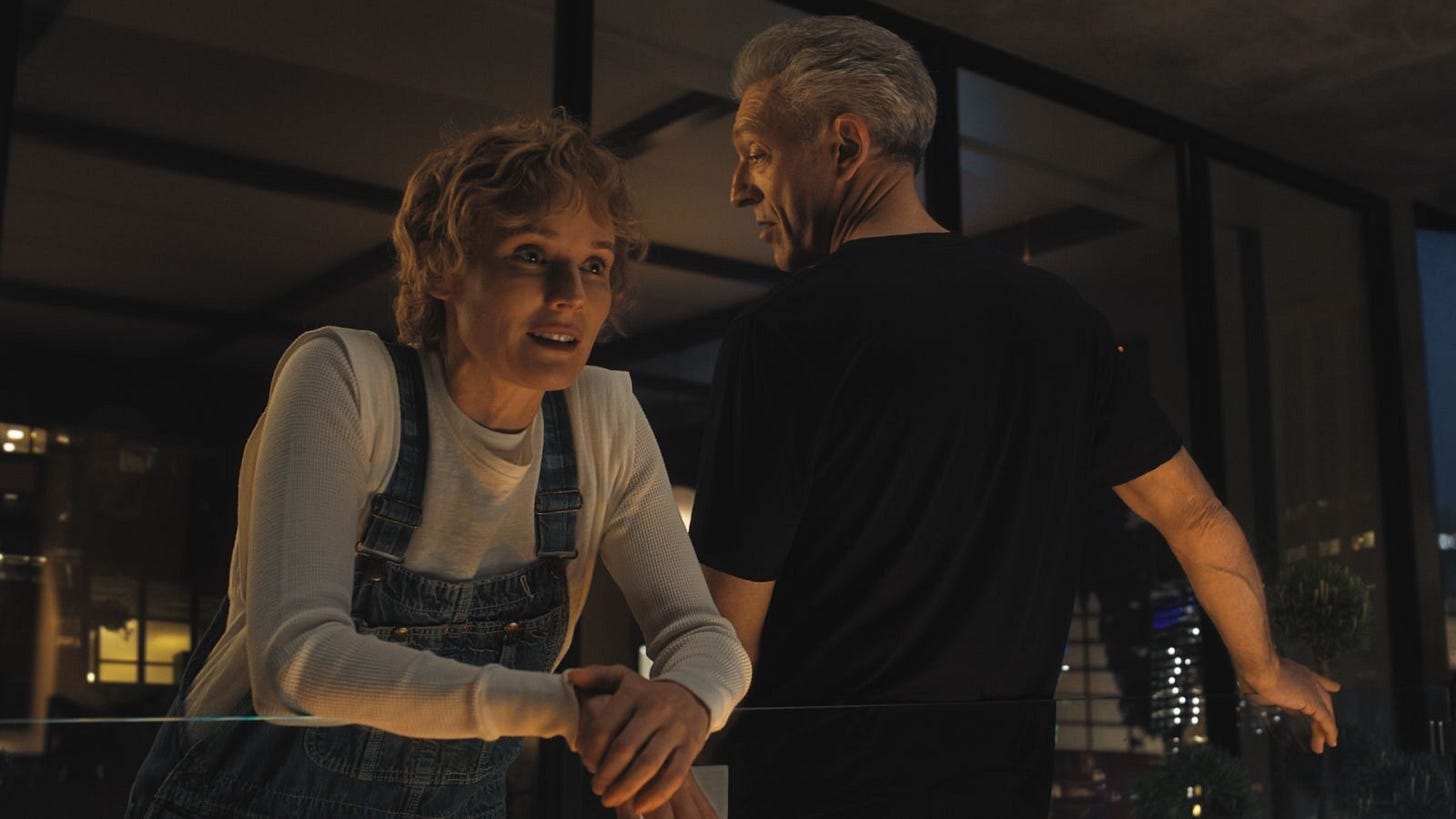
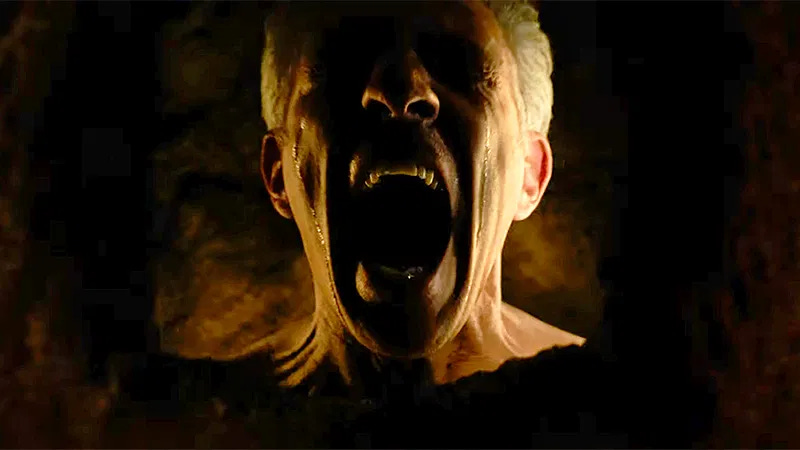
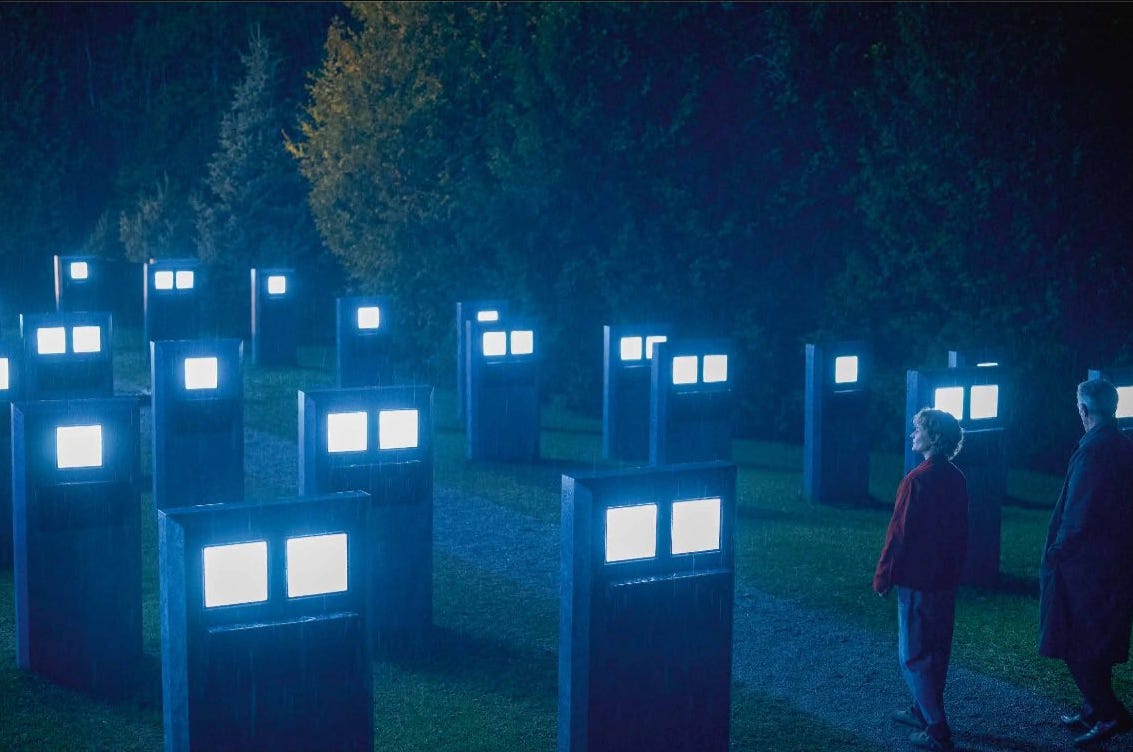
Seeing this tuesday night after the Zombies documentary
Re: stilted acting, I think Cassel was just mimicking David Cronenberg himself (haircut, way of speaking, probably strange half-smile under all the weird shit he's saying), otherwise the other actors seem all in and do the same dramatic performances you'd expect from a movie but surrounded by Cronenberg's unnaturalistic techno mumbo jumbo dialog. One of the reasons I adore Cronenberg's work is the characters always engage with the weirdest shit with a sort of, "Well, this is very interesting, how do I deal with it?" that leaves a lot of normies cold.